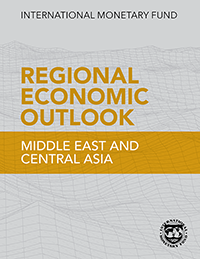This web page provides information on the activities of the Office, views of the IMF staff, and the relations between Yemen and the IMF. Additional information can be found on Yemen and IMF country page, including official IMF reports and Executive Board documents in English that deal with Yemen.
Yemen and the IMF
-
Press Briefing Transcript: Middle East and Central Asia Department, Spring Meetings 2025
April 24, 2025
Press Briefing Transcript: Middle East and Central Asia Department, Spring Meetings 2025
-
IMF Holds Informal Board Briefing on Afghanistan, Iran, Sudan, Syria, Tunisia, and Yemen
March 14, 2025
In line with the standard procedures for members whose Article IV consultations with the International Monetary Fund (IMF) are delayed, on March 14, 2025 the Executive Board was briefed by staff on economic developments in Afghanistan, Iran, Sudan, Syria, Tunisia, and Yemen.
-
IMF Staff Concludes Visit to Yemen
January 23, 2025
The ongoing regional conflict has deepened Yemen’s already acute humanitarian and economic conditions, leading to further contractions in GDP and rising inflation.
-
IMF Staff Concludes Staff Visit to Yemen
May 2, 2024
An International Monetary Fund (IMF) team, led by Joyce Wong, conducted a mission in Amman, Jordan with the Yemeni authorities from April 28th to May 2nd. Discussions covered recent economic developments in Yemen, the economic outlook, and progress on key policy reforms.
-
Transcript of Middle East and Central Asia April 2024 Press Briefing
April 18, 2024
Transcript of Middle East and Central Asia April 2024 Press Briefing
Regional Economic Outlook
May 1, 2025

Charting a Path through the Haze
Growth is projected to rise in the Middle East and North Africa in 2025 and 2026, but at a slower pace than anticipated in the October 2024 REO. Across the region, rising trade tensions and policy uncertainty are adding to the impact of conflicts and extended oil production cuts to weaken growth prospects. In the Caucasus and Central Asia, growth has been robust but is set to moderate to a more sustainable pace. Policymakers must adapt to the new environment, prioritizing macroeconomic stability and accelerating structural reforms to seize global opportunities.
Read the Report



